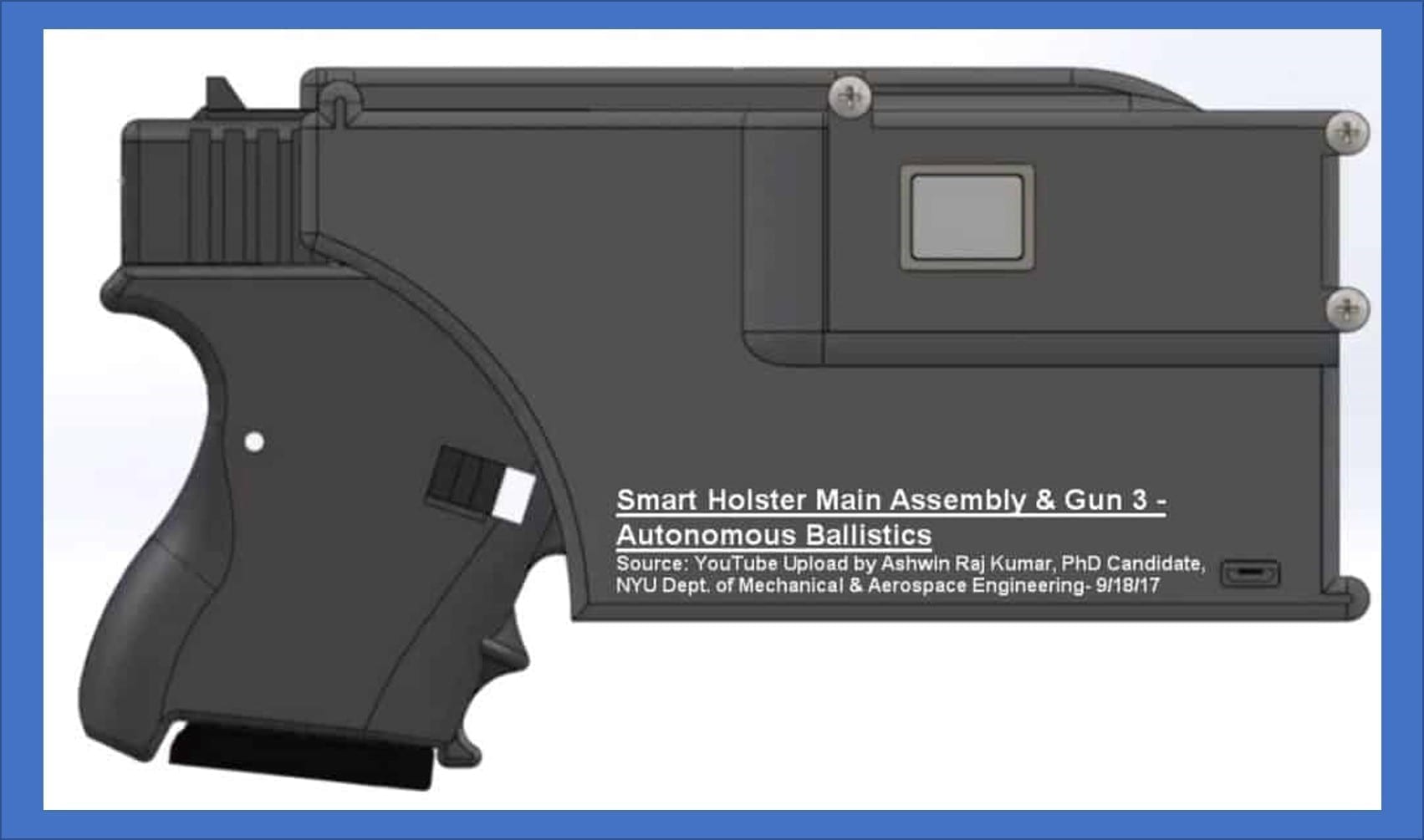It seems nowadays that every miniscule advance in firearm technology is held up as a “revolutionary” step. “Smart” gun holsters are the latest.
Every few weeks, I come across an article that claims it has identified the “future of guns”. It seems nowadays that every miniscule advance in firearm technology is held up as a “revolutionary” step. “Smart” gun holsters are the latest.
Recently, there has been a lot of similar hype about “smart” guns. Beyond all the marketing hoopla, these are essentially pistols that require your fingerprint, or some other type of security confirmation, before they will fire. They have been lauded and criticized in equal measure, with some pointing out that they are easier to hack than most websites, and others seeing them as a catch-all solution to gun crime.

This week, I came across a variation on the same theme. A group of students from Brooklyn have just won $1 million for designing a “smart holster.” Based on the same principles of smart guns, this holster claims to make firearms safer by holding a pistol securely in the holster until various types of security confirmation are made. The students’ design makes use of a fingerprint reader, a key-card sensor, and even voice recognition.
Now. I’m not here to criticize these students. I am sure that designing such a device provided many hours of educational work, and they should be proud to have won $1 million dollars as their reward. Instead, I want to look at why “smart” holsters are not going to work.
Holster Security
Some of the problems with smart holsters are shared with smart guns, and some are different. For both, the idea is pretty simple – that requiring some kind of security confirmation means that no-one can take your gun from you and fire it. Police Officers, in particular, are at risk of being shot with their own weapons.
I’m not going to weigh in with an opinion on what the police should carry. They have their own experts, and know better than me the types of threats they face. But let’s have a look at whether a smart holster would work for a civilian.
Imagine, if you will, the standard concealed carry set-up, of the type used by thousands of people every day – say a SW Shield in a G43 holster inside the waistband. To make the obvious point, there is little to no chance that an assailant is going to be able to steal a weapon carried like this.
Most good holsters require pressure from a particular angle to unlock the weapon, or at least have some kind of locking mechanism. Even if this is just a leather strap with a popper, no-one is going to be able to grab your gun from you. And if someone tries, you are going to feel this almost immediately.
In short, having an extra layer of security on the holster is going to make zero difference to someone trying to grab your gun, because this is pretty much impossible anyway.
Draw Speed
That point made, there is another reason why “smart” holsters are not going to catch on anytime soon: any holster that makes it harder to draw your weapon is going to slow down your draw speed.
For those carrying a handgun for self-defense – that is, the majority of people – this undermines the whole purpose of carrying a weapon. Take a look at any of the many forums on concealed carry, and you’ll see that draw speed is among the top items discussed. This is one of the reasons why outside the waistband holsters have become more common in recent years: rather than trying to make their gun harder to steal, at the moment it is felt that even an extra millisecond shaved of your draw speed is worth a little less security.
Smart holsters will undoubtedly make any firearm slower to draw, irrespective of the type of security implemented. Of all those being trialed, however, one stands out as particularly stupid – voice recognition. If you are in an active shooter situation, hiding in cover, do you really want to have to talk, loudly and clearly, to your holster? No.
The proof is in the pudding. Most major online gun stores do not carry “smart” guns or holsters, for the simple reason that people don’t buy them. They’re fun to read about, but that’s where the buck stops.
Another Problem
My point, as you’ve gathered, is that smart holsters not only fail to provide any extra protection, they also make their wearer a less effective shooter. So, what? Surely that just means that no-one will buy them.
Well, maybe. The problem is that lawmakers might have other ideas. Several states, such as New Jersey, have passed laws that say that as soon as smart guns are available, this will start a countdown, after which only smart guns can be sold in the state. It’s not hard to imagine a similar law being passed for smart holsters. In this context, I hope I have helped to point out the stupidity of such devices, before politicians get any “smart” ideas.


Join the conversation!